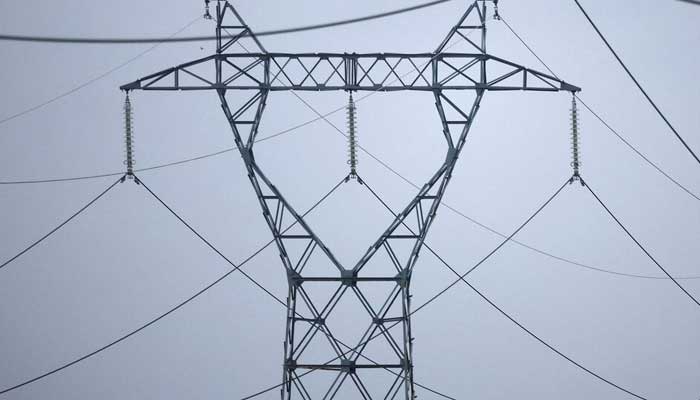Experts discuss solutions to overcome energy financing barriers
KARACHI: Renewables First, a think tank focused on energy and environmental issues, hosted a launch event on Wednesday to unveil its latest report, ‘Derisking Pakistan’s Renewable Energy Future’. The report identifies key financial obstacles in Pakistan’s renewable energy sector and presents actionable solutions to reduce the cost of capital and stimulate industry growth.
The study highlights innovative financial mechanisms, including securitisation, blended finance, and currency hedging, as pivotal tools to address financing challenges. It proposes regulatory reforms such as fiscal incentives and favourable monetary policies to attract institutional investments and create a robust renewable energy ecosystem.
“The technology is there, but financing remains the bottleneck,” said Zeeshan Ashfaq, CEO of Renewables First, in his opening remarks.The report stresses the need for reducing the cost of capital through financial innovations like securitisation, blended finance and fintech-driven models. Ahtasam Ahmad, the report’s author, discussed the potential global impact of such measures. “A 1.0 per cent reduction in the cost of capital for emerging markets could save $150 billion in clean energy financing under the net-zero scenario,” he said.
The event featured three panel discussions, each focusing on critical aspects of renewable energy financing: Experts discussed the catalytic role of blended finance, emphasising tools like capacity building, credit guarantees and first-loss coverage to reduce risks and attract concessional capital. Ahmed Ammar Yasser, chief of party at PFAN-PPSE, highlighted the importance of impact-driven narratives. “For concessional money to flow, we need compelling impact stories,” he said.
Sohail Malik, technical team lead at the CRCC, stressed regulatory clarity and trust-building as essential components for mobilising resources and enhancing investor confidence. “Blended finance is a strategic tool for integrating public and private resources,” he added.
The panel discussion on renewable energy investment explored the viability of securitisation and project aggregation to transform renewable energy financing. Experts highlighted the need for standardised projects, credit enhancements, and secondary markets to attract institutional investors.
Talha Ameer Khan, deputy CEO of Burj Clean Energy Modaraba, shared insights on Pakistan’s first clean energy fund. “By consolidating fragmented investments into a cohesive platform, we are not only mobilising capital but also creating a scalable model for clean energy on the Pakistan Stock Exchange (PSX),” he said.
Irteza Ubaid, COO of Shams Power Limited, highlighted the benefits for developers. “Securitisation unlocks capital tied in existing projects, allowing reinvestment into new ventures and accelerating the energy transition,” he noted.
Inclusive financing models and fintech-driven solutions, such as lease-to-own plans and alternative credit scoring, were spotlighted as effective tools for expanding solar energy access to underserved communities.
Arif Lakhani, co-founder of Qist Bazaar, explained, “Our lease-to-own model allows households to pay instalments equivalent to their electricity bills, democratising access to renewable energy while enabling ownership.”
Vardah Malik, climate finance adviser at Chemonics International, discussed fintech’s potential. “Fintech can bridge the renewable energy financing gap by reducing transaction costs and introducing peer-to-peer lending models,” she said.
Nayab Babar, head of strategy at JazzCash, discussed the role of data analytics. “Leveraging data analytics and credit scoring, fintech can address credit gaps and tailor renewable energy financing to underserved communities,” she added.
The event ended with a collective call for collaboration among regulators, financiers and developers. Key recommendations included fostering public-private partnerships, implementing supportive policies, and leveraging digital transformation to unlock Pakistan’s renewable energy future.
-
 Why Prince William Releases Statement On Epstein Scandal Amid Most 'challenging' Diplomatic Trip?
Why Prince William Releases Statement On Epstein Scandal Amid Most 'challenging' Diplomatic Trip? -
 Historic Mental Health Facility Closes Its Doors
Historic Mental Health Facility Closes Its Doors -
 Top 5 Easy Hair Fall Remedies For The Winter
Top 5 Easy Hair Fall Remedies For The Winter -
 Japan Elections: Stock Surges Record High As PM Sanae Takaichi Secures Historic Victory
Japan Elections: Stock Surges Record High As PM Sanae Takaichi Secures Historic Victory -
 Prince William, Kate Middleton Finally Address Epstein Scandal For First Time: 'Deeply Concerned'
Prince William, Kate Middleton Finally Address Epstein Scandal For First Time: 'Deeply Concerned' -
 Kim Kardashian Promised THIS To Lewis Hamilton At The 2026 Super Bowl?
Kim Kardashian Promised THIS To Lewis Hamilton At The 2026 Super Bowl? -
 Andrew Mountbatten-Windsor Throws King Charles A Diplomatic Crisis
Andrew Mountbatten-Windsor Throws King Charles A Diplomatic Crisis -
 Barack Obama Hails Seahawks Super Bowl Win, Calls Defense ‘special’
Barack Obama Hails Seahawks Super Bowl Win, Calls Defense ‘special’ -
 Pregnant Women With Depression Likely To Have Kids With Autism
Pregnant Women With Depression Likely To Have Kids With Autism -
 $44B Sent By Mistake: South Korea Demands Tougher Crypto Regulations
$44B Sent By Mistake: South Korea Demands Tougher Crypto Regulations -
 Lady Gaga Makes Surprising Cameo During Bad Bunny's Super Bowl Performance
Lady Gaga Makes Surprising Cameo During Bad Bunny's Super Bowl Performance -
 Paul Brothers Clash Over Bad Bunny's Super Bowl Performance
Paul Brothers Clash Over Bad Bunny's Super Bowl Performance -
 South Korea: Two Killed As Military Helicopter Crashes During Training
South Korea: Two Killed As Military Helicopter Crashes During Training -
 Elon Musk Unveils SpaceX’s Moon-first Strategy With ‘self Growing Lunar City’
Elon Musk Unveils SpaceX’s Moon-first Strategy With ‘self Growing Lunar City’ -
 Donald Trump Slams Bad Bunny's Super Bowl Performance: 'Absolutely Terrible'
Donald Trump Slams Bad Bunny's Super Bowl Performance: 'Absolutely Terrible' -
 Jake Paul Criticizes Bad Bunny's Super Bowl LX Halftime Show: 'Fake American'
Jake Paul Criticizes Bad Bunny's Super Bowl LX Halftime Show: 'Fake American'




